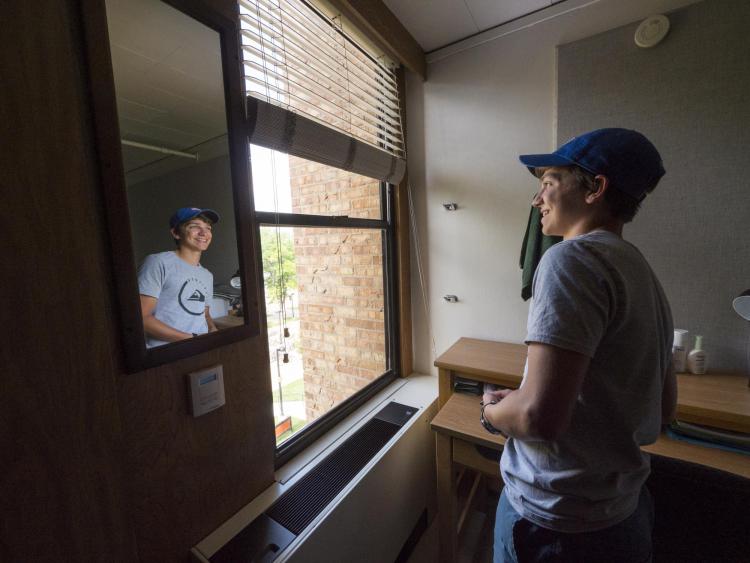Healthy Buffs: 3 ways to feel at home at CU Boulder

No matter how it looks from the outside, though, adjustment is a process that everyone goes through. Carla Bradley, a psychologist at Counseling and Psychiatric Services (CAPS) here at CU Boulder, discusses what we need to know about adjustment and how to support a friend who may be struggling.
What do we need to know about adjustment?
Adjustment is the process of adapting to new environments and challenges. It includes anything from learning to do laundry to making new friends and feeling at home in a new place.
It’s common to struggle with adjustment, and it’s important to recognize the process looks different for everybody. Resilience (the ability to overcome challenges and keep going) is an important piece of going through the adjustment process as well.
What can we do to start adjusting?
Whenever we’re in a new situation, we need time to adjustment and recognizing that is one of the first things that will help us with the process. There are a variety of other things that can help, too.
- Developing a routine can create a sense of familiarity in a new situation. This can look like going to bed at the same time each night, finding a spot to relax in between classes or taking regular walks.
- Find or reach out to our communities. Having people we can talk to and a community to support us helps create a sense of belonging. The Center for Student Involvement is a great place to find groups and meet people who have similar interests.
- Prioritizing sleep, balanced meals and staying active can all help the mind and body feel regulated as they go through times of change.
What can we do to help someone who may be struggling with the adjustment process?
Everybody’s adjustment process looks a little bit different. People sometimes need a little bit of support, even if it looks like they are adjusting well. Here are some things we can do to help others adjust.
- Reach out. Whether it’s a new friend or someone we’ve known for a while, inviting someone to come out or just grab coffee helps with making social connections
- Be inclusive. If it looks like someone is uncomfortable in a group, helping to break the ice or introducing them to other people in the group can make them feel like they belong.
- Help them go at their own pace. Validate their feelings if they are apprehensive about going to a student group meeting or social gathering, but help them stretch the boundaries of their comfort zone.
Again, the key is resilience. Know that every student goes through this transitional period and has the capability to come out stronger on the other side.
Bradley points out that struggling with adjustment is no reflection on the individual. Our propensity for resilience gets built up over time, and we develop the tools at our own pace.
Adjustment is a universal process, and being able to recognize these feelings is an important step in building resilience. Reaching out, taking care of ourselves and giving the process plenty of time and space can all help.
About the expert
Carla Bradley earned her doctoral degree from The Fielding Institute in 1997 after working as a social worker and licensed professional counselor for 17 years. She completed her postdoctoral work in Frontier Psychology and served in the National Health Service Corp for several years before coming to CAPS in 2002.
During her long tenure as a social worker, Bradley developed interests in foster care, adoption, addiction, trauma, feminist therapy and program administration.
She remains active in deepening her understanding and appreciation of diversity and multiculturalism. Bradley is interested in religious and spiritual issues in psychotherapy as well as the intersection of philosophy and psychology. She is active in the teaching, training, and mentoring of future psychologists.
Bradley has a developing personal yoga practice and appreciates how self-care and attunement to the body can contribute to overall mental and emotional wellness.


